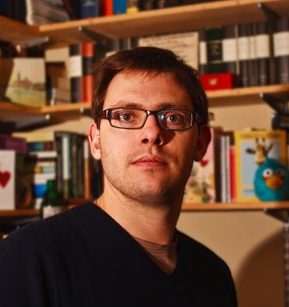This post is a guest blog by Dr. Tom Chatfield, the author of the SAGE Campus Critical Thinking online course that equips students with the intellectual skills and practical habits of critical thinking.
Tom is an author, tech philosopher and broadcaster.
Studying effectively has always required the skills that tend to be bundled together under the heading of “critical thinking”: constructing and evaluating arguments; assessing and deploying evidence; seeking reasonable explanations; learning to skewer common fallacies; seeing beyond the seductions of rhetoric; subjecting both your own and others’ ideas to sustained, rigorous interrogation.
I write books and design online courses and resources about critical thinking, and have been fascinated by the gamut of activities it spans since I was a student - as well as by its capacity to equip students with thinking tools that will stand them in good stead for life as well as study. In recent years, however, I’ve found myself spending more and more time writing and speaking not just about the kind of intellectual activities I’ve listed above - but also about the preconditions for committing to them in terms of time, attention, habit and technology.
In particular, when I teach and speak to students across colleges, schools and universities, I’m struck by the everyday ways in which they must wrestle with information overload, constant connectivity, and the sense that their thoughts do not fully belong to them; that the words they use, the ideas they share and the culture they participate in is simply too frantically networked for individual critical engagement to be meaningful. Here’s what I usually say in response…
First of all, they’re right to feel this way!
The information environments we move through in our daily lives are fundamentally communal experiences - and the critical thinking skills most likely to help us are primarily about who or what to trust, how to ask for help, and what it means to formulate the best possible questions. Misinformation, disinformation and fake news are the dark side of our digital age; but remedying them is as much about having better and more open conversations, and learning to cast a skeptical eye on others’ words, as it is about technology.
Second, they have more control than they think they do.
Our time and attention are under assault as never before; but this only makes pauses, moments of reflection and second thoughts more valuable. Amid daily routines that can too often become flattened into constant semi-distraction, the benefits of different types and textures of time - of establishing boundaries, variety, offline engagement, space for the mind to wander - have never been greater. Without the time in which to think, you will only ever get so far.
Third, critical thinking is about knowing how to think, not what to think…
In particular, it’s about resisting the impulse either to despair or seek premature refuge in certainty. Honest doubt is a difficult thing to sustain when you feel the world expects instantaneous certainty; but it is also the only approach that allows you, incrementally, to learn about what’s actually going on in the world.
I say all of these things and then, often, I ask my audience to perform a simple exercise. You can try it yourself. Simply think of an idea you disagree with strongly - and then try to come up with the strongest possible arguments in its favor. You can do it alone, or with a partner, taking turns to try to persuade one another of the merits of an idea you vehemently oppose!
Why is this worth doing? Because rigorous thinking isn’t about confirming whatever you might wish to be true. It’s about putting ideas to a genuine test; learning as much as you can from those who disagree with you; and, sometimes, changing your ideas in the face of new evidence.
I don’t expect an exercise like this to change someone’s deeply-held views; but it may help them hold these views more mindfully, and communicate them with a deeper empathy towards those who disagree. It also, for me, embodies the central importance of critical thinking in our digital age – and of the time, space and will to think twice within the maelstrom of news, views, anxieties and uncertainties surrounding us.
More than most of us, today’s students face an uncertain future; one in which they are being asked to manage their own time and attention, take responsibility for their studies, and keep their spirits up in the face of ongoing disruption.
What does it mean to seek knowledge, understanding and help effectively in such a situation; to keep asking questions that matter; to consume information discerningly, attentively, and gradually take ownership of your thoughts and studies? What does it mean to create the conditions within which serious, sustained learning and inquiry can take place? These are among the questions I hope my teaching, books and courses can help others answer for themselves.
If you’re teaching a course that requires critical thinking, the SAGE Campus Critical Thinking online course could supplement your teaching and equip students with the skills to succeed.
Sign up to our demo hub to try a full sample module of Critical Thinking today or find out how libraries can get institution-wide access to SAGE Campus.


